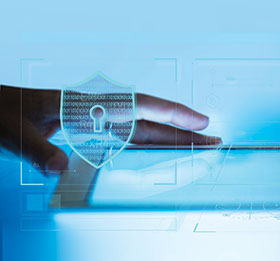

So far this year, 4,1 billion private records have been exposed as a result of breaches and cyberattacks. From WhatsApp, to Capital One, to utilities, to city and state governments all over the world, organisations with multi-million dollar security budgets have found themselves making headlines for all the wrong reasons.
Data protection has never been more important – or more difficult – says JC De Kock, country manager for Acronis Emerging Markets. He points out that as the threats facing companies continue to grow, and as attacks increase in scope and severity, security is being prioritised by organisations of all sizes, and from all sectors. However, the ever-increasing numbers of breaches being disclosed indicate that there is no way to ensure 100% effective protection, he says.
“This is why backup is a recommended – and vital – element in any security strategy. Even should the worst case scenario happen, backups ensure that the business can recover quickly. This is especially important in the age of rampant ransomware. The costs of falling victim to ransomware have steadily increased over the last year, causing an average of 10 days of downtime and about $36 295 in recovery. In light of this, companies have to start re-evaluating their backup regimes to ensure they can continue operating in the event of an attack.”
De Kock explains that it’s well-known that a detailed backup strategy serves as an insurance policy if data is ever lost or damaged due to hardware or software failure, natural disaster or user error. “What’s less commonly considered is the value of backups in the case of a ransomware attack. Companies that have backed their data up offsite need not worry about ransomware because they should be able to restore their systems quickly and easily. With regular backups that are secured in the cloud, ransomware becomes little more than a nuisance. If a business is hit by an attack, it has little to worry about because it has safe, secure copies of any files that might have been encrypted.”
However, with the increasing popularity of cloud backups, cybercriminals are getting even more creative. In order to compromise a cloud-based backup, the criminals need to acquire credentials to access the cloud, and regular ransomware malware does not have these credentials. Instead, cybercriminals will attack the agent on the device that acts as a gateway to get data to the cloud.
“The statistics point to a growing number of incidents where cloud-based backups have been targeted. Unfortunately, industry experts, including the FBI, predict that the number of ransomware attacks will continue to increase exponentially. Some organisations are therefore starting to create backups of their backups, while others are putting additional security measures in place,” adds Garry Kondakov, CEO of Acronis Emerging Markets.
“This is why we developed Acronis Active Protection. Included in all our backup products, whether on premise or cloud, at no additional cost to customers, Acronis Active Protection provides real-time protection from ransomware. We guarantee that our customers won’t lose data even if they are attacked because Acronis Active Protection protects data, backup files, and the backup application itself, even if a ransomware variant is new or not yet identified.”
Acronis uses a heuristic approach to ensure Active Protection defends against all ransomware. Heuristics can detect hundreds of files belonging to the same family by comparing a chain of file system events to a database of malicious behaviour patterns.
While heuristics can detect new threats, they operate based on experience/behaviour results and need to be controlled for false positives. Acronis Active Protection also checks suspicious processes against whitelists and blacklists to complement the heuristics. When a user blocks a potential ransomware attack, it goes into the blacklist so that the malicious program does not start on the next reboot and the user does not need to repeatedly block the ransomware.
In addition, Active Protection self-protects the Acronis agent program. No process in the system, except Acronis software, can modify backup files. It incorporates a self-defence mechanism that eliminates any typical attack so that bad actors can’t disrupt the work of the Acronis software or alter the content of backup files, and Acronis Active Protection also monitors the Master Boot Record (MBR) of any user’s Windows-based machine hard drive and does not allow any changes for non-whitelisted legitimate utilities.
“Acronis Active Protection has stopped 15 000 ransomware attacks since it was first launched in 2017. And in testing by an independent lab, it significantly outperformed 22 anti-virus solutions in recognising and blocking ransomware. Because Acronis Active Protection uses artificial intelligence to look for erratic processes and behaviours, it’s able to quickly spot ransomware’s destructive fingerprints and put a stop to it before the damage is done – even with a zero-day attack,” De Kock concludes.
© Technews Publishing (Pty) Ltd. | All Rights Reserved.